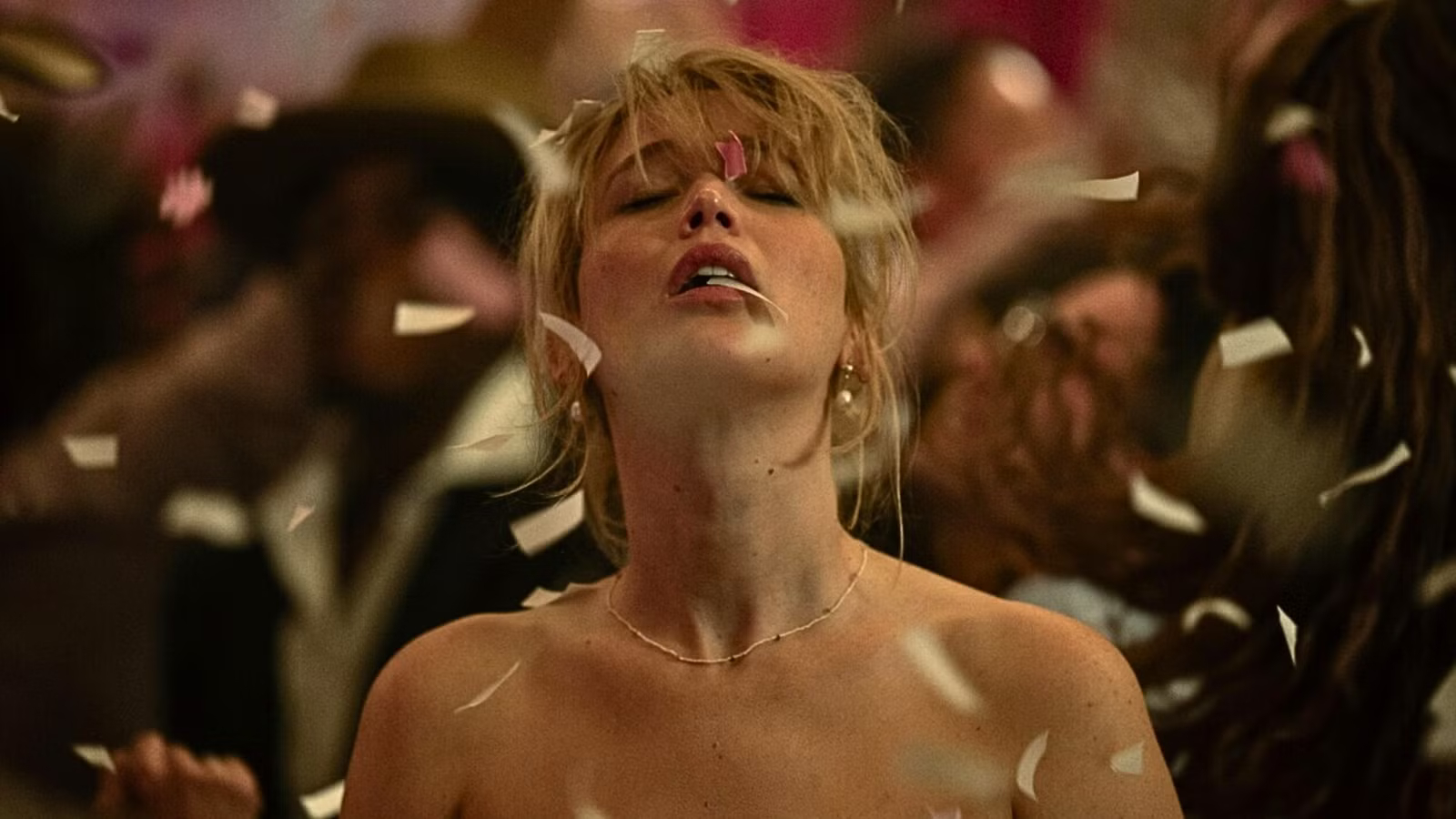In 1974, John Cassavetes released A Woman Under the Influence, starring Gena Rowlands as a mother going through a mental breakdown. I can’t imagine that people at the time were ready for such an unflinching look at psychological collapse, particularly from a woman who is expected to be both loving mother and dutiful wife. Fifty years later, that movie is now recognized as a masterpiece, but we are not much better equipped to deal with that particular strain of maternal or relational madness. It’s one of the preoccupations of the movies recently, depicted in films like If I Had Legs I’d Kick You, Nightbitch, and the forthcoming The Bride, an update of Bride of Frankenstein. This also includes Die My Love, the latest film by surrealist filmmaker Lynne Ramsey, in which Jennifer Lawrence and Robert Pattinson play a young couple that has moved into a farmhouse in the Montana woods after having their first child.
Die My Love has echoes of Ramsey’s 2011 film We Need To Talk About Kevin. Both movies are experiential dream-horrors about mothers and the psychosis of motherhood. The big difference is that Die My Love even further prioritizes experience over narrative. Lawrence’s Grace is a new mother with clear postpartum mental-health issues to go with some other unspecified problems, and the movie follows her through her full descent into the hell of the mind. How much you enjoy Lawrence as a performer will largely determine how you feel about this movie.
I was not the biggest fan of Lawrence during her stretch of try-hard performances in mid-tier David O. Russell movies, but I changed my mind about her when I saw 2017’s Mother!, a mostly bad movie that she is incredible in. In that one she too plays a wife and new mother hurtling toward insanity. In Mother! it’s her husband’s narcissistic perspective that swallows their home and drives her mad, while in Die My Love you are so embedded inside her own mind that not only do you question everything happening but you start to see things her way. Through insanity, she might be the only one acting sane.
There’s sure to be a lot of comparing Lawrence’s performance to Rowlands’s in A Woman Under The Influence, and it’s certainly deserved. But what makes Lawrence stand out here is not only the sheer commitment and raw grossness of her frailty, but the feral intensity and magnetism she brings. There are multiple scenes of her crawling on the ground like a wily cat one moment or a rabid dog in another, devolving into an animal with no sense of shame or embarrassment. It’s hard to watch some of the things she does in what is an intensely stressful performance, but you still can’t look away from her.
None of that is to slight her partner in the film. As Jackson, Grace’s husband, Pattinson brings a soul that deepens what could be a stereotypical distant, casually irresponsible husband character. You feel both his absences and his presences. Watching the exasperation and desperation on his face as he gets pulled into Grace’s downward spiral is a reminder of how he became one of the more interesting actors of his generation. He may not be Peter Falk, but he does so much with what is essentially an unknowable side character. That being said, this is still a domestic drama, and so much of the couple’s issues come down to the basic fact that Grace is desperate to get laid while Jackson seems to have been sapped of all desire. An important lesson to heed for any new married couple, no doubt.
Sissy Spacek, as Jackson’s mother, also gives the movie a heft of gravitas and soul. Soulfulness and a sort of primordial animalism are all over the movie. It does get unwieldy at times, and the movie stutters most when it actually does try to tell some kind of straight-forward story about what is happening to Grace. It’s better to let the movie live in the not knowing, in the madness and hormonal ferocity of this nightmare world. Let us be in the moment with Jennifer Lawrence’s performance, and the movie will leave you floating in its terror and honesty. She’s more than up to the task.
Recommended

